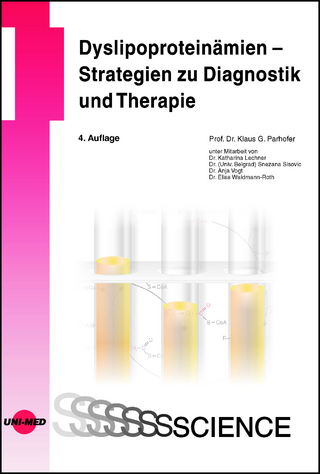
Neuropsychological and Behavioral Aspects of Diabetes
Springer-Verlag New York Inc.
978-0-387-97075-2 (ISBN)
- Titel ist leider vergriffen;
keine Neuauflage - Artikel merken
Section I Insulin-Dependent Diabetes.- 1 Insulin-Dependent (Type I) Diabetes Mellitus: Medical Overview.- Etiology—Epidemiology.- Presentation—Management.- Hypoglycemia.- Complications of IDDM.- 2 Adaptation of Children to Newly Diagnosed Diabetes.- Psychosocial Adaptation.- Effects of Age at Diabetes Onset.- Treatment Studies.- Methodological Issues and Future Research.- Summary.- 3 Adherence Behaviors and Health Status in Childhood Diabetes.- Adherence and Health Status: Conceptual Issues.- Assessing Adherence.- Assessing Daily Diabetes Management by 24-Hour Recall Interview.- Adherence in Childhood Diabetes: Developmental Issues.- Adherence in Childhood Diabetes: A Unitary or Multidimensional Concept?.- Adherence/Health Status Relationships in Childhood Diabetes: Summary of Current Knowledge Base.- Methodological Issues and Guidelines for Future Research.- 4 Neuropsychological Consequences and Correlates of Diabetes in Childhood.- The Relationship Between Diabetes, Brain Dysfunction, and Psychosocial Disorders.- Early Studies of Cognitive Functioning in Diabetic Children.- Juvenile-Onset Diabetes and Neuropsychological Functioning: The Age at Onset Effect.- Other Risk Factors for Neuropsychological Dysfunction in Diabetic Children.- Juvenile-Onset Diabetes and Neuropsychological Dysfunction: Some Final Thoughts.- 5 Diabetes and Adaptations in Family Systems.- Why Study the Family’s Role in Insulin-Dependent Diabetes Mellitus (IDDM) and Non-Insulin- Dependent Diabetes (NIDDM)?.- Theories of the Family’s Role in Diabetes.- Research on Family Adaptation to Diabetes in Childhood and Adolescence.- Research on Family Adaptation to Diabetes in Adulthood.- Priorities for Future Research on Families and Diabetes.- 6 Eating Disorders and Diabetes.- Anorexia Nervosa and Bulimia Nervosa.- Subclinical Eating Disorders.- Eating Disorders and IDDM—Clinical Reports.- Prevalence of Eating Disorders in IDDM Patients.- Eating Disorders and Medical Consequences.- Subclinical Eating Problems in Patients with IDDM.- IDDM and Vulnerability to Eating Disorders.- Treatment of Eating Disorders.- Prevention of Eating Disorders.- Conclusion.- 7 Neuropsychological Sequelae of Acute and Chronic Blood Glucose Disruption in Adults with Insulin-Dependent Diabetes.- Transient Changes in Neuropsychological Function During Acute Blood Glucose Alteration.- Neuropsychological Effects of Chronic Glucose Alteration.- Implications and Directions for Further Research.- 8 Symptom Perception and Blood Glucose Feedback in the Self-Treatment of IDDM.- BG Feedback and Self-Treatment.- BG Symptoms.- Accuracy of Symptom Beliefs.- Ability to Recognize Hypoglycemia and Hyperglycemia.- Intervention to Improve BG Perception.- Summary and Future Directions.- Section II Non-Insulin-Dependent Diabetes.- 9 Non-Insulin-Dependent (Type II) Diabetes: Medical Overview.- Diagnosis and Classification.- Pathophysiology and Heredity.- Management Approach to the Patient.- Chronic Diabetic Complications.- Summary.- 10 Stress, Behavior, and the Autonomic Nervous System in Type II Diabetes Mellitus.- The Role of Stress in the Onset of Type II Diabetes Human Studies.- The Relationship Between Stress and Glycemic Control in Type II Diabetes.- Relaxation Therapy and Type II Diabetes.- Altered Adrenergic Sensitivity and Type II Diabetes.- Summary and Conclusions.- 11 Behavior Strategies for Improving Weight Loss in Obese Type II Diabetic Patients.- Obesity as a Risk Factor for the Development of Type II Diabetes.- Benefits of Weight Control.- Weight Loss and Mood.- Differences Between Diabetic and Nondiabetic Patients Participating in Weight Control Studies.- Overview of Early Studies on Dietary Interventions for Type II Diabetic Patients.- Behavioral Weight Control versus Nonbehavioral Treatments.- Exercise.- Self-Monitoring Blood Glucose.- Spouse Support.- Very Low Calorie Diet Regimen.- Predictors of Outcome.- Conclusion.- 12 Cognitive Function in Non-Insulin-Dependent Diabetes.- Methodological Considerations.- Cognitive Function in NIDDM.- Improving Performance through Choice.- Motivation and the Improvement in Performance.- NIDDM and Information Retrieval from Long-Term Memory.- NIDDM and Self-Reported Memory Problems.- Failures to Find NIDDM-Related Cognitive Deficits.- Cognitive Function and Metabolic Control in NIDDM.- Summary and Conclusion.- 13 Affective Disorders and Diabetes Mellitus.- Definitions of Affective Disorders.- Epidemiology of Affective Disorders and Diabetes Mellitus.- Mechanisms Underlying the Association of Diabetes and Depression: Why Do Diabetics Get Depressed?.- Mechanisms Underlying an Association between Mania and Depression.- Treatment Issues in Patients with Affective Disorder and DM.- Conclusion.
| Reihe/Serie | Astronomy and Astrophysics Library |
|---|---|
| Zusatzinfo | Bibliography |
| Verlagsort | New York, NY |
| Sprache | englisch |
| Gewicht | 570 g |
| Themenwelt | Sachbuch/Ratgeber ► Gesundheit / Leben / Psychologie ► Krankheiten / Heilverfahren |
| Geisteswissenschaften ► Psychologie ► Biopsychologie / Neurowissenschaften | |
| Medizinische Fachgebiete ► Innere Medizin ► Endokrinologie | |
| Studium ► 1. Studienabschnitt (Vorklinik) ► Biochemie / Molekularbiologie | |
| ISBN-10 | 0-387-97075-4 / 0387970754 |
| ISBN-13 | 978-0-387-97075-2 / 9780387970752 |
| Zustand | Neuware |
| Haben Sie eine Frage zum Produkt? |
aus dem Bereich


